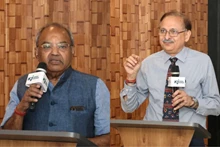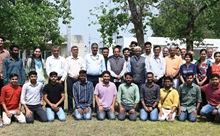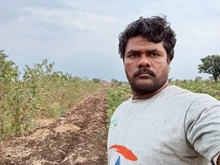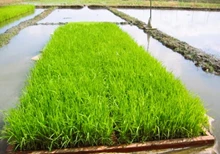
The critical situation of Sri Lanka's currency crisis has resulted in political, economic, and social turmoil. Furthermore, the currency collapse has resulted in a 100% increase in food prices in two years. In the midst of all of this, President Ranil Wickremesinghe has sought assistance, according to the Island Online.
Agriculture supports approximately 40% of Sri Lankan households. From June to December 2022, two out of every ten households saw their income decrease. According to The Island Online English-language daily in Sri Lanka, one out of every two households uses harmful coping mechanisms like loans to cope with a lack of food or money to buy it.
Furthermore, the country's salaries and incomes are inadequate, making it difficult to afford food. According to The Island Online report, it typically takes two years in Sri Lanka to recover from a currency crisis.
"Immediate action to provide farmers with quality seeds, fertilizers and pesticides will enable them to protect their livelihoods and feed their communities. It is also critical to provide cash assistance to the most vulnerable farmers, livestock keepers, and fishermen for them to restore productive assets and accelerate their recovery, according to an FAO report. Agriculture output has been declining since mid-2021.
As a result of severe shortages of fertilizers and other critical production inputs, livestock keepers cannot access feed and basic veterinary supplies, and fishermen cannot access fuel for motorized boats, according to The Island Online. According to the Island Online, President Wickremesinghe requested support from everyone on December 16 this year, regardless of political differences. He emphasized that everyone should put aside their differences and work together to build the country's economy.
"There is a possibility of a food shortage in 2023," he said. To address this, we launched the food security programme. I propose that each divisional secretariat conduct another review of the program's implementation. You can get new data here. As a result, we are moving forward with the food security programme more formally. This programme will continue beyond 2023. We will keep doing so. Each political party is represented on local councils. However, we must all work together to implement this programme," according to The Island Online.
Wickremesinghe also stated that they were able to provide farmers with fertilizer. And, thanks to the success of the crop season, they have an abundance of rice. Despite the fact that they had identified issues such as insufficient storage space. "We are also working to resolve those issues. At the same time, we have taken steps to keep paddy prices under control," he added. These steps may lead to the country's recovery from food shortages and economic problems.











